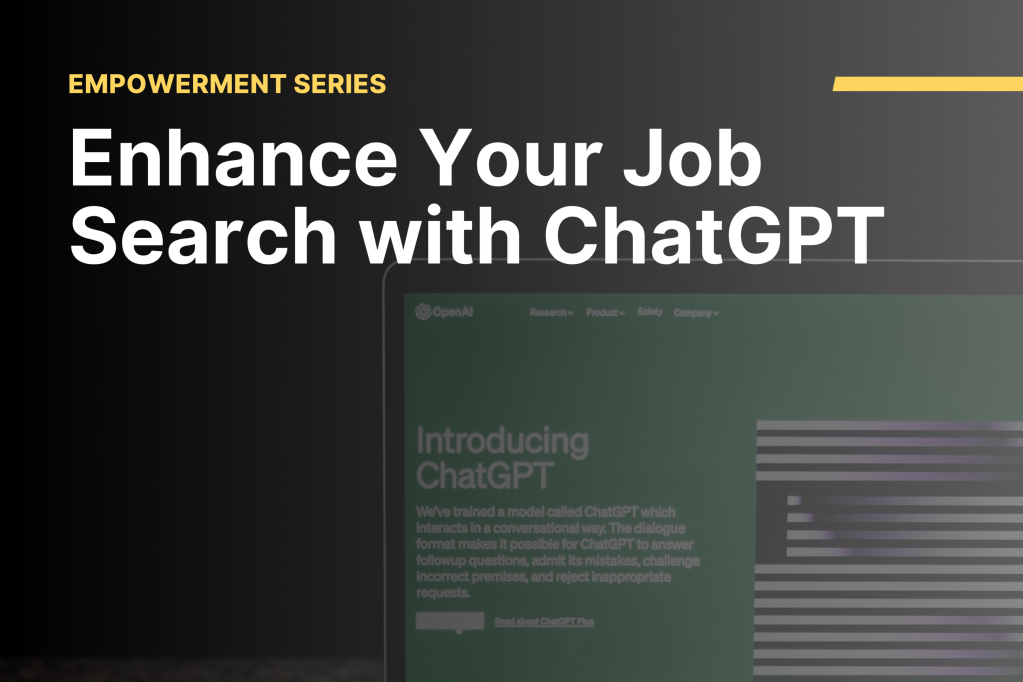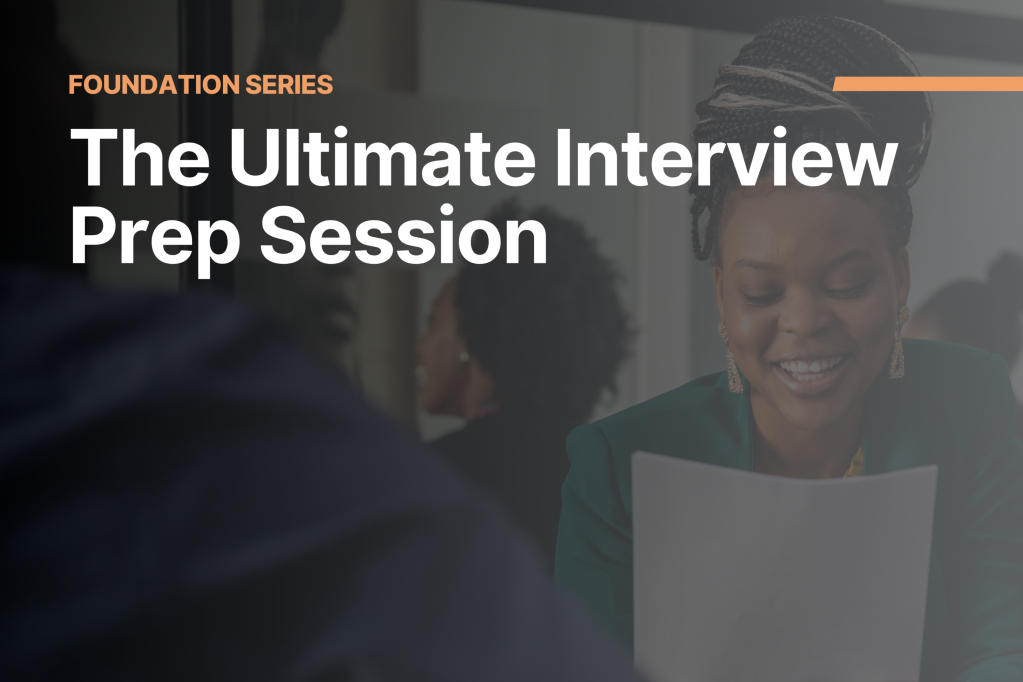It’s happened to so many of us.
You interviewed for that position you’ve been eyeing and it went off without a hitch. You’ve patiently waited to hear back from the employer. Days pass, then weeks without any communication. Reality sets in — you’ve been ghosted.
TechTarget defines ghosting as, “ceasing communications without notification” (Accessed 2022). Undeniably a two-way street, professional ghosting is initiated by employers and candidates alike.
Unfortunately, for job seekers, ghosting often feels just as hard (or harder) to accept than rejection. Lack of closure and clarity fuel uncertainty, making it difficult to shift the focus onto other opportunities.
With plenty of experience guiding learners toward meaningful employment opportunities our seasoned career team knows this trend all too well.

We met with multiple career experts and even held a in-depth discussion with Heather Hans to discuss the topic of ghosting. Discover tips and hear more from that conversation below.
Ghosting Tips and Advice from Our Experts
Communication is an art form, especially when it comes to your career. Add in the possibility of getting ghosted, and things become even more complex.
Like Hans says, job seekers have very little control over whether or not they get ghosted. Because of this, responding to or overcoming those situations requires a balance of active and reactive strategies.
No strangers to ghosting themselves, our experts provided us with some tips and advice that all share one common theme: self-reflection.
Here is what they recommend:
In the wake of radio silence, job seekers tend to focus on the “why” that’s shaping their individual experience, but the truth is, ghosting is universal.
When deliberating your ghosting response or strategy, one important distinction to make is between over-analysis and self-reflection.
Pro tip:
Instead of fixating on why you haven’t heard back, focus on what you can control. Don’t waste lots time and energy looking for an answer. There’s no guarantee you’ll get one, let alone a good one.
Be intentional about where you place your energy. Our experts suggest giving employers the benefit of the doubt, shifting your focus to self-reflection, and then taking actionable steps to move on.
The experts believe that ghosting presents a unique opportunity for job seekers. In some instances, it can even act as a catalyst for your career success.
Pro tip:
If you’re getting the silent treatment, take a moment to spot any trends. If you find that it is happening a lot, you might want to consider tweaking your job search strategy.
Depending on how you look at things, a lack of response might act as an opportunity for you to consider where there might be a disconnect, whether that’s with the role or company that ghosted you or the possibility of missing information in your materials. Hans certainly feels strongly about the latter.
“When you don’t hear back and it’s an ongoing problem time and time again, there’s something wrong with the basics,” she explains.
“It [a mistake] just shows a lack of attention to detail. Even if someone was interested, they [might] look at that [and say] ‘Nope,’” Hans elaborates.
As far as changing your strategy goes, the experts recommend a few tips to start:
- Use a different resume each time you apply to a role. If you find yourself unsuccessful, lean into experimentation. Test out different types of resumes by adjusting your approach for each one to see what sticks.
- Recognize and address your skill gaps. If you have the skills, make sure they are correctly articulated in the designated section of your resume. If you don’t have the skills employers are looking for in your target industry, find out how you can attain them.
- Revisit your career materials to check for errors that you may not have noticed. Make sure that each resume is tailored specifically for the job you want and is ready to face an applicant tracking system (ATS).
Pro tip:
“Maybe a link isn’t working anymore, or you think that you’ve put a link to your portfolio, but really it just goes to the landing page of your GitHub, or you have something silly shading in the background and it’s not getting through applicant tracking systems. Let’s go back and look at that. And then people [will] start connecting [with you].”
– Heather Hans
By shifting your focus to actionable tasks, you flip the script and take power back into your own hands.
The next time you apply for a position, you will have newfound confidence in what you’re bringing to the table to supplement your communication strategy.
When it comes to professional communication, strategy is paramount; and when it comes to professional ghosting, follow up is essential.
“It is not a nuisance because their [the employer’s] job is to find someone to hire.” Hans explains.
Our experts have witnessed professional communication strategies play out first-hand through the career moves of candidates that they’ve spoken with, and in their own lives.
“The people who stand out are those who have multiple positive interactions,” Hans adds.
It should come as no surprise that the first step to take after any formal interview, informational interview, or networking opportunity is to follow up. In addition to how you should approach this, there is value in who you send follow-ups to and when you send them.
Although each scenario requires its own discretion, the experts recommend focusing on these tips as you plan your follow up communications:
- Avoid being nagging or invasive. Try to limit the amount of times you reach out to two — unless you have unique circumstances. In those cases, use your best judgment.
- Diversify who you reach out to. Find someone who can help you with your interview (recruiters or talent acquisition), someone who has the job you want in a more senior capacity, and someone who is a bit more elusive, like executive-level leaders of a company.
- Follow up with substance. Bring up any important work updates, projects that you are working on, or industry-relevant volunteer experience.
- Timing is important when it comes to follow-ups. Two weeks is generally the standard timeframe for following up on an application. However, if you are following up on an application for a job you really want, 7-10 days is appropriate. Always take initiative and follow up after an interview. If you don’t hear back — especially for the second round — reaching out again in 1-3 days is typical.
Pro tip:
“I have found there is a real art to sending messages because, sometimes, if you just send it to one person and nobody else, you won’t hear back. I have found that — and I encourage this carefully [and] not all the time — but if you really do want a response, send it to the person that you interviewed with and include anyone [else] you had the chance to meet. You don’t want to look like you’re tattling on someone. You just want to say, ‘Hey everyone, I’m just following up…’ and you will get a response.”
– Heather Hans
The last, but arguably most important, tip to consider when an employer ghosts you is that every communication matters. This goes for both initial and follow-up communications.
Pro tip:
Be proactive in your professional communications. Whether it’s before, during, or after your job hunt, staying connected pays off. Building relationships consistently, not just when you need a favor, paints you as genuine and authentic to fellow professionals.
As we’ve mentioned, you cannot control the actions of an employer. You can, however, take an active role in your own career.
Take time to ensure that your initial communications with employers and industry professionals are the best that they can be. Command the attention of your audience, make a positive impression, and employ preventative ghosting measures through succinct and pointed outreach.
Pro tip:
“Take every opportunity to get everything out of every interaction that you can. Some people will say, ‘Well, they told me no, so I’m done.’ I’m like, ‘You did all this work and, then, because you didn’t get the outcome you wanted, you’re throwing the whole thing away?’ [If you do that] you’re going to just start over all the time. So let’s take everything out of every interaction.”
-Heather Hans
Like we previously discussed, ghosting feels very personal. If you end up not getting the response you were hoping for — or none at all — make sure to set your emotions to the side and wow that company (or person) with your communication skills.
By putting your best foot forward in every communication, you are opening yourself up to potential contacts and proving the strength of your character to employers. After all, you never know how far that positive interaction will take you.
Our experts put it best: it’s all about what you can control.
With the right tools, tips, and resources in your pocket, ghosting will only feel like a minor inconvenience or even, better yet, an opportunity to reflect and iterate. The most important thing is that you are able to maintain your confidence and self-worth despite adversity.
The next time an employer ghosts you, take time to self-reflect and make necessary changes to your strategy. You never know, the right employer might only be one positive interaction away.
Ready to put what you learned into practice? Check out our Tools & Resources page to learn more about career materials, outreach, and more.










